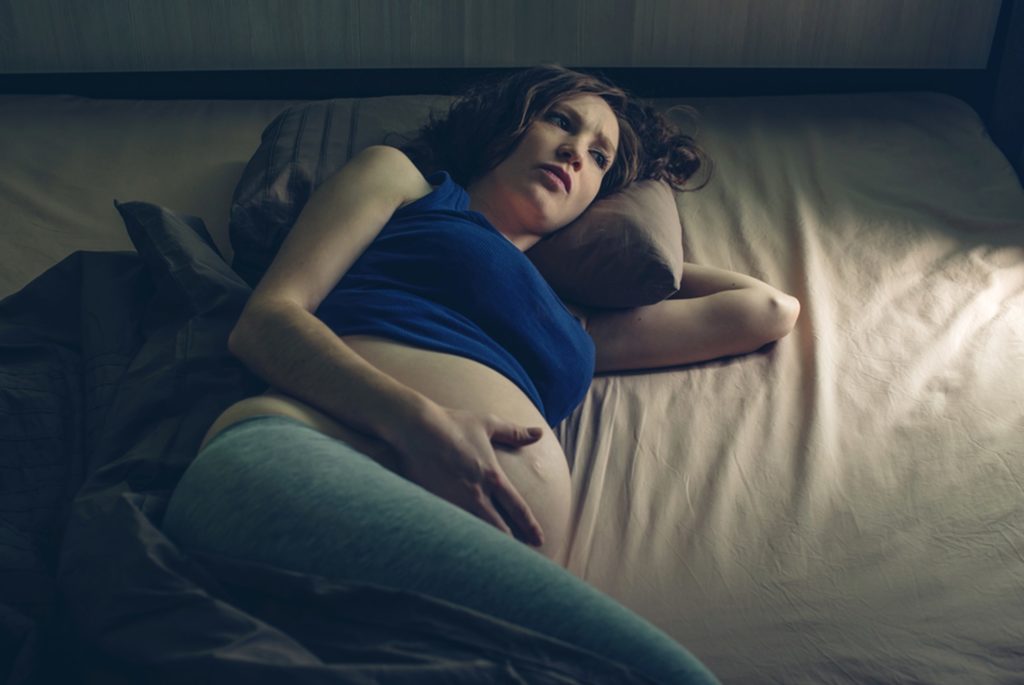You’ve got the happy news that you are pregnant? Great.
Next up is a series of minor health problems that progress to become annoying with each passing week. These include body cramps, vaginal thrush, anxiety, backache, and indigestion.
One common problem most women experience during the early days of pregnancy is insomnia.
During the first trimester, most pregnant women are deprived of sleep. They experience a sudden dip in their quality of sleep, especially during the night, which in turn makes them feel exhausted all day long.
So, if you have insomnia with other symptoms of pregnancy, you must consult your physician for advice.
After discussion, they may recommend you to take the pregnancy test. There are two types of pregnancy tests including the use of an ELISA kit to detect HCG in the blood that indicates pregnancy, and another uses urine like home kits.
Causes of Insomnia During Pregnancy
There Are a Myriad of Reasons That Causes Insomnia:
- Stubborn Back Pain
- Leg Cramps
- Shortness of Breath
- Abdominal Pain
- Vivid Dreams
- Nausea or Vomiting
- Frequent Urination
The other causes of insomnia are primarily related to stress during this exciting yet challenging time. You might be worried not only about the labor & delivery but also thoughts like whether you’ll be a good mom or not. Such thoughts can keep you up all night long and frequent urges to urinate further destroys your sleep.
How To Manage Insomnia During Pregnancy?
A Bedtime Routine
One of the critical things to do when battling insomnia during pregnancy is having good sleep habits. Follow a routine, have a fixed time for going to bed and waking up.
It is advisable to avoid screen time at least an hour before you go to sleep. The blue light coming from television, smartphone, and other smart gadgets harms the body’s circadian rhythm. Instead, try reading a book.
Journal if you want. Write down all your concerns over a piece of paper, and discuss them with your partner. Write down the everyday experience of the various stages of pregnancy. Ensure that your mind is as empty as possible.
Take a soothing bath; it may make you feel sleepy. But, ensure that the temperature is not too high, as it can be dangerous to your developing baby. Avoid hot tubs during the first phase of pregnancy.
Diet and Exercise
Diet & exercise have an integral impact on your sleep.
Drink plenty of water throughout the day, but limit it an hour before hitting the bed, and no caffeine after evening.
Have a proper, well-balanced meal, but avoid fatty foods that may cause heartburn. It is advisable to have your dinner early, but don’t go to bed with an empty stomach. Have a light snack if you feel hungry after dinner. A warm glass of milk can put you in deep sleep.
It is essential to stay active all day long so that you get completely exhausted for a good night’s sleep.
Do Not Take Stress
Try to relax. Keep yourself distracted on the bed until you’re feeling tired enough to go to sleep. It’s way more effective than lying on the bed for hours and practically doing nothing.
Practice meditation and various other techniques of exercising & relaxing.
Final Takeaway
Remember, insomnia in the first trimester will pass. But, if you’re having trouble getting any sleeping, then try taking naps during the day time. You can consult your healthcare provider to prescribe sleep-inducing supplements and medicines.
Did you experience insomnia during pregnancy? Feel free to share your thoughts in the comments section below:



